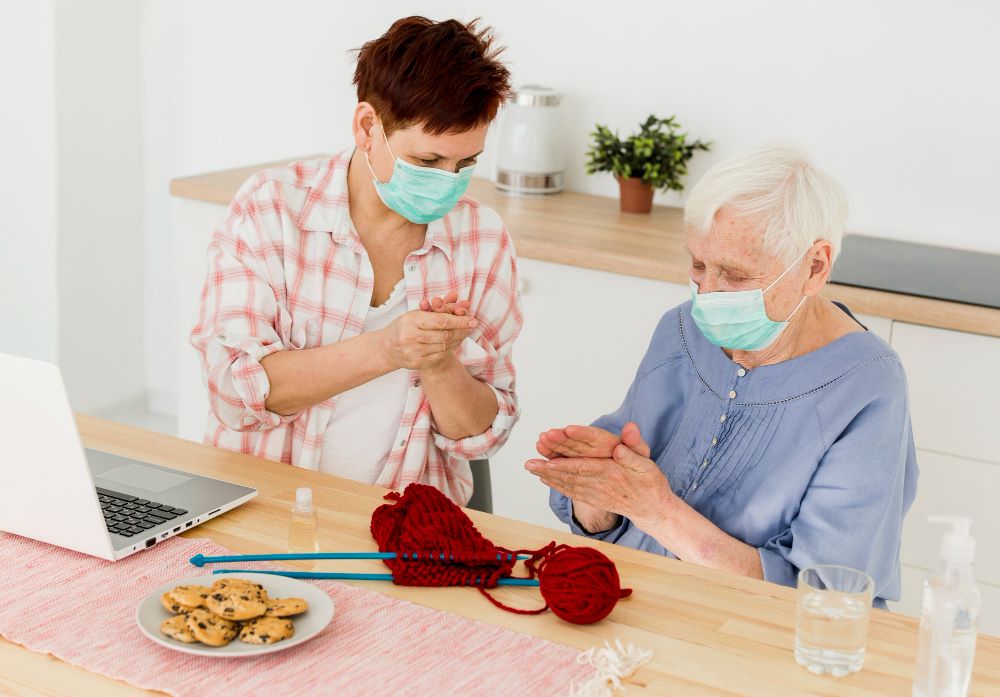When it comes to providing care for yourself or a loved one, the decision between in-home care and medical home health is a crucial one. Both options have their unique benefits and drawbacks, and understanding the differences can help you make an informed choice that suits your specific needs. In this article, we aim to shed light on the intricacies of in-home care and medical home health services, helping you gain insights.
Understanding In-Home Care
In-home care is a type of service that allows individuals to receive personalized care and assistance within the comfort of their own homes. It is a popular choice for seniors and individuals with disabilities who wish to maintain their independence while still receiving the necessary support they require. In-home care services encompass a wide range of assistance, including:
Personal Care
Professional caregivers assist with activities of daily living (ADLs), such as bathing, dressing, grooming, and toileting. They provide a helping hand with tasks that may have become challenging due to age or health-related issues.
Companionship
Apart from physical care, in-home caregivers offer companionship and emotional support. They engage in meaningful conversations, play games, and participate in various activities to promote social interaction and mental stimulation.
Medication Management
In-home care providers ensure that medications are taken as prescribed and on time, reducing the risk of adverse reactions and improving overall health outcomes.
Meal Preparation
Nutrition is a critical aspect of health, and in-home caregivers prepare nutritious meals tailored to individual dietary needs and preferences.
Light Housekeeping
Keeping the living space clean and tidy is essential for maintaining a safe and comfortable environment. In-home caregivers assist with light housekeeping duties.
The Advantages of In-Home Care
Personalized Care
In-home care offers highly individualized support, adapting to the unique requirements of each individual. Care plans are tailored to address specific needs, ensuring the highest level of attention and assistance.
Familiar Environment
Being in a familiar home setting can have a positive impact on a person’s emotional well-being. It reduces stress and anxiety, which can be especially beneficial for seniors or those with memory-related conditions.
Cost-Effective
Compared to residential care facilities, in-home care can often be a more cost-effective option, as it eliminates the expenses associated with facility maintenance and overhead.
One-on-One Attention
In-home care allows for focused, one-on-one attention from the caregiver, fostering a strong bond between the care recipient and the caregiver.
Understanding Medical Home Health
Medical home health, on the other hand, is a specialized service that provides medical care and treatment to individuals who are recovering from an illness, injury, or surgery. This type of care is typically prescribed by a healthcare professional and involves skilled nursing or therapy services. Medical home health services include:
Skilled Nursing Care
Registered nurses and licensed practical nurses provide skilled medical care, including wound care, medication administration, and monitoring of vital signs.
Physical Therapy
Physical therapists work with patients to improve mobility, strength, and balance, helping them regain independence in daily activities.
Occupational Therapy
Occupational therapists assist individuals in regaining skills needed for daily living, such as dressing, eating, and bathing.
Speech Therapy
Speech therapists help patients recover communication and swallowing abilities after a stroke or other medical conditions.
The Advantages of Medical Home Health
Specialized Medical Care
Medical home health provides access to skilled medical professionals who offer expert care tailored to a patient’s specific medical needs.
Transition from Hospital to Home
After a hospital stay, medical home health services facilitate a smooth transition back to the comfort of one’s home while ensuring continued medical attention.
Faster Recovery
With focused medical care and therapy, patients may experience a faster recovery and better overall health outcomes.
Monitoring and Assessment
Medical home health services include regular monitoring and assessment of a patient’s condition, allowing for timely adjustments to the treatment plan.
Which Option Is Right for You?
The decision between in-home care and medical home health depends on several factors, including the individual’s medical condition, level of independence, and personal preferences. Here are some key considerations to help you make an informed choice:
1. Medical Needs
If the individual requires skilled medical attention and ongoing therapy, medical home health may be the more suitable option. It provides access to qualified healthcare professionals who specialize in post-acute care.
2. Independence
For those who value their independence and wish to age in place, in-home care offers personalized support while allowing them to remain in their familiar home environment.
3. Budgetary Constraints
Consider the financial aspects of both options. In-home care can be more budget-friendly for individuals with limited financial resources, as it does not involve the same level of medical intervention as medical home health.
4. Emotional Well-being
Evaluate the emotional well-being of the individual. In-home care’s companionship and personalized attention can have a positive impact on mental health, particularly for seniors.
5. Family Support
Assess the availability of family support. In-home care can be complemented by the involvement of family members, creating a robust support system for the individual.
Conclusion
In conclusion, the decision between in-home care and medical home health is a significant one that should be made based on careful consideration of the individual’s needs and preferences. In-home care offers personalized support and companionship in the familiar surroundings of one’s home, promoting independence and emotional well-being. On the other hand, medical home health provides skilled medical care and therapy for those in need of specialized post-acute services.
Ultimately, the choice between these two options will depend on the unique circumstances of the individual seeking care. By understanding the distinctions between in-home care and medical home health, you can make an informed decision that best serves your specific requirements.







